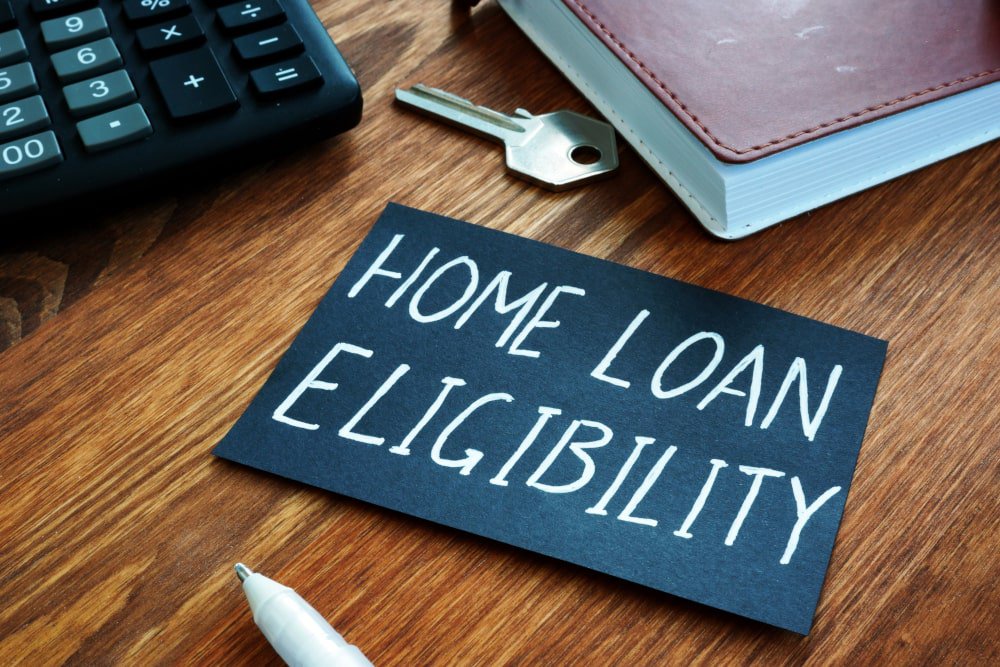What Is Mortgage Eligibility?

If you are an aspiring homeowner looking to enter the housing market, it is essential to understand your mortgage eligibility. As a homebuyer, you may be able to calculate your mortgage eligibility yourself based on your income information. However, even seasoned buyers often still have questions about the mortgage approval process as a whole.
What Is Mortgage Eligibility and How Is It Calculated?
Put simply, a mortgage involves a transaction of funds between you and your lender. When you are deemed eligible for a mortgage, it is because your lender has assessed the risk you pose and decided that you are a favourable candidate for a loan. Here are a few factors lenders consider when calculating your mortgage eligibility:
Down Payment Size
When in the market for a house, the size of your down payment can greatly impact your eligibility for a mortgage. The more money you put down up-front, the less money you need to borrow from your lender to cover the cost of your home. A larger down payment reduces the size of your mortgage, which means it also increases your eligibility for approval.
If the value of your property exceeds $1 million, you are required to put down at least 20% of the asking price unless working with a private lender. Even if your home price falls below this figure, you may still want to consider making a more sizable down payment than what is required (5% minimum for homes under $500,000, 10% minimum for any amount by which the price exceeds $500,000 while still falling below $1 million).
The size of your down payment can also impact your mortgage affordability. If your down payment is less than 20% of the asking price, you will need to purchase CMHC mortgage insurance or mortgage default insurance form one of the other few providers. This will require that you pay insurance premiums. Not only does a small down payment make it harder to qualify for a mortgage, but it can also increase your total costs in the long run.
TDS Ratio
Your total debt service (TDS) ratio is calculated by dividing your total annual housing and debt expenses by your gross annual income. These expenses can include items such as mortgage payments, property taxes, heating costs, as well as all your debt payments and obligations.
Under CMHC regulations, your TDS ratio cannot exceed 44%. The lower this ratio, the easier it will be to qualify for a mortgage. For uninsured mortgages where the down payment is at least 20% or more, a good mortgage broker will be able to get exceptions from some lenders in many cases. When exceptions to TDS ratios are needed, but not granted by the big banks, mortgage brokers Toronto have access to alternative lenders who play by a different set of rules and make it easier for borrowers to qualify for larger mortgage amounts.
GDS Ratio
The gross debt service (GDS) ratio, like the TDS ratio, is used to gauge your ability to repay and finance your debts. It is calculated by dividing your annual housing-related expenses by your gross annual household income.
Under CMHC regulations, your GDS ratio cannot exceed 39%. The lower this ratio, the easier it will be to qualify for a mortgage. Similarly, as with TDS, a good mortgage broker Toronto can help you qualify with lenders who have more flexible GDS requirements if needed.
Credit History
Finally, lenders will take a look at your credit history to see if you have the financial means and stability to be approved for a mortgage and maintain your monthly mortgage payments. Credit cards, alternative lines of credit, other mortgages, car loans, and other debts will all be considered.
It is always a good idea to request a free copy of your credit report before applying for a mortgage so that you can identify any problems with your credit history before even working with a mortgage broker or lender. Checking your credit report in advance also allows you to ensure your credit history is up-to-date and accurate.
Your unique financial situation may impact the size of your mortgage, the length of your mortgage term, the length of amortisation period, or your interest rates that you can qualify for.
Stress Testing: Everything You Need to Know
A stress test is a measure of confidence conducted by your lender in order to determine your ability to keep up with your mortgage payments in the case that interest rates rise in the future. You must pass a stress test anytime you enter into a new mortgage, switch your lender, or refinance your mortgage.
Your lender will measure your ability to keep up with mortgage payments should your mortgage rate rise to the qualifying rate, which is the Bank of Canada’s 5-year benchmark rate.
Usually, this rate differs for insured and uninsured mortgages. However, as of June 1st, 2021, the qualifying rate for all mortgages is either 5.25% or your lender’s rate + 2%, whichever is higher.
If you fail your stress test, you will not be eligible to get a mortgage with any AAA lender, including most major banks, or you would have to settle for a smaller mortgage amount. You may want to consider working with a mortgage broker who has access to many alternative lender and private mortgage lenders in this case. While a private mortgage lender and other private lenders would not require stress tests and have much greater flexibility when it comes to your income, they typically charge higher interest rates to account for the added risk they are taking on.
How to Improve your Eligibility
If you are not satisfied with your current mortgage eligibility, or you wish to qualify for a bigger mortgage, here are some steps you can take:
- Save up more money over a longer period of time. If you can afford to wait, save up your funds until you can put down a more significant down payment. Doing so will reduce your expenses in the long run and make it easier to qualify for a mortgage. However, given the growth our market is experiencing, this might work against you unless you are able to save up a significant amount more.
- Increase your credit score. A higher credit score is sure to improve your mortgage eligibility. You can increase your credit score by paying down some debts and bills, and making all of your bill and debt payments consistently and in a timely manner. Do not spend beyond your means, and pay off the balances on your credit card bills as soon as you possibly can.
- Shop around for lenders. Each lender will have unique eligibility requirements. If you are not satisfied with your eligibility with one lender, you can simply search around and find another.
- Get a co-signer or co-applicant. If you add a co-signer or co-applicant you has good income and credit, this will help count towards your income for the TDS and GDS calculations. By adding income to your application from a family member or friend who has little debt, this will help your overall application. There are some implications to consider when going this route, so be sure to consult an expert and do your research.
One of the easiest ways to ease the mortgage qualification process is by working with a professional mortgage broker and getting pre-approved for a mortgage. A mortgage broker can calculate what size of mortgage you qualify for, help you estimate your monthly mortgage payment, find you the right lender for your needs, and can even help you negotiate better rates with your lender.
Before pre-approving you, your mortgage broker will look at your assets, your current and past income, your levels of debt, and your credit score and credit history . You may also be asked to provide financial statements from your banking provider.
By working with a professional licenced mortgage broker to get pre-approved, you can go into the house-hunting process better informed, knowing your ideal price range, likely interest rate, and your estimated monthly payments.
If you are interested in getting a pre-approval for your mortgage, contact Clover Mortgage to schedule a free consultation with one of our trusted and knowledgeable brokers today!





